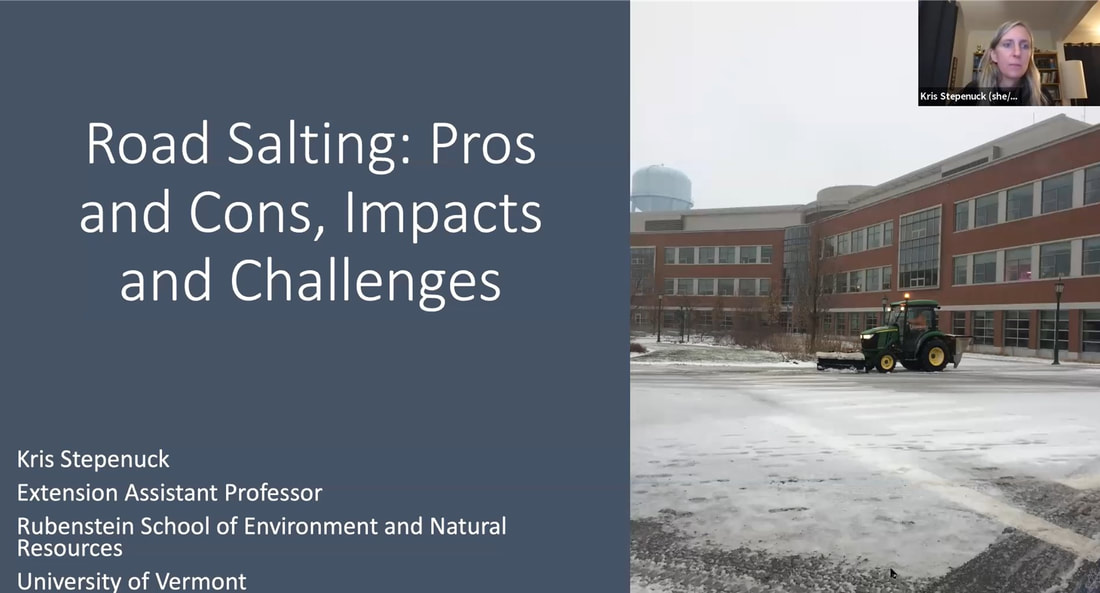|
On Monday, January 25th, more than two dozen members of the Mad River Valley community joined together for the first in a series of online workshops, hosted by Friends of the Mad River and led by Bill Reed and Joel Glanzberg of Regenesis Group, to build up participant’s capacity to think in ways that draw from nature’s ability to regenerate itself in the face of disruption.
Friends of the Mad River turned 30 years old in 2020, marking a moment of reflection for Friends’ staff and board. “We invited the Regenesis Group to the Mad River Valley because, as we thought about the last three decades of our work here, we realized that our role is broader than chasing down problems like leaky septic systems to supporting a more holistic idea of watershed health and wellbeing,” said Kinny Perot, Friends’ board member. These workshops draw from the initial Zoom gatherings in November and December, which saw more than eighty attendants, to offer a smaller group a more focused look into regenerative practices. The Regenesis group writes that, “regenerative development is grounded in a deep understanding of the integral and interdependent nature of living systems—social and biotic—and the complex and emergent process by which they co-evolve. It draws inspiration from the self-healing and self-organizing capacities of nature and works to restore these capabilities when they are missing or disrupted, whether in ecological or human living systems.” Over the next few months, participants will work together to explore the practice of regenerative thinking while focusing their attention on the Mad River watershed community. The workshops are not aimed at particular outcomes, rather at building the capacity of participants to think and act in regenerative terms. “Friends of the Mad River has helped bring resources to this Valley for the last 30 years. We hope that bringing Regenesis continues in the same vein. That said, we don’t have all the answers,” said Perot. “One of the great pleasures of being able to invite Bill and Joel to our Valley is the recognition that Friends can foster creativity, capacity, and community among the workshops participants without needing to hold a particular agenda. These workshops may be starting with Friends, but they will continue to grow in meaning and purpose as each of the participants takes ownership of this experience. I am excited to play a part in making it happen!” The workshops are currently at capacity. The initial, larger, sessions can be watched online at friendsofthemadriver.org. Friends of the Mad River plans on continuing to find opportunities to bring resources to the Valley and Friends’ staff are eager to connect with community members who would like to learn more or support these efforts. Originally Published for the Valley Reporter, January 28th 2021  It’s winter in Vermont, and that means it’s road salting season. On January 14th, ~15 Ridge to River Taskforce member gathered on Zoom to follow up on conversations initiated through past Taskforce and Road Roundtable meetings and learn more about the topic of road salt. Kris Stepenuck, Extension Assistant Professor at UVM, shared a brief presentation that summarized the environmental, economic, and social challenges and the many perspectives associated with using salt to keep our roads, parking lots, driveways and sidewalks safe during winter months. She also described some best management practices that can be used to minimize the use of salt. The group discussed the challenges local road crews and budget decision makers face and the pros and cons of a few of the possible best management practices. Watch the recording here, and download Kris' slides here. |
Friendsof the Mad River Archives
July 2024
Categories |
Proudly powered by Weebly

 RSS Feed
RSS Feed